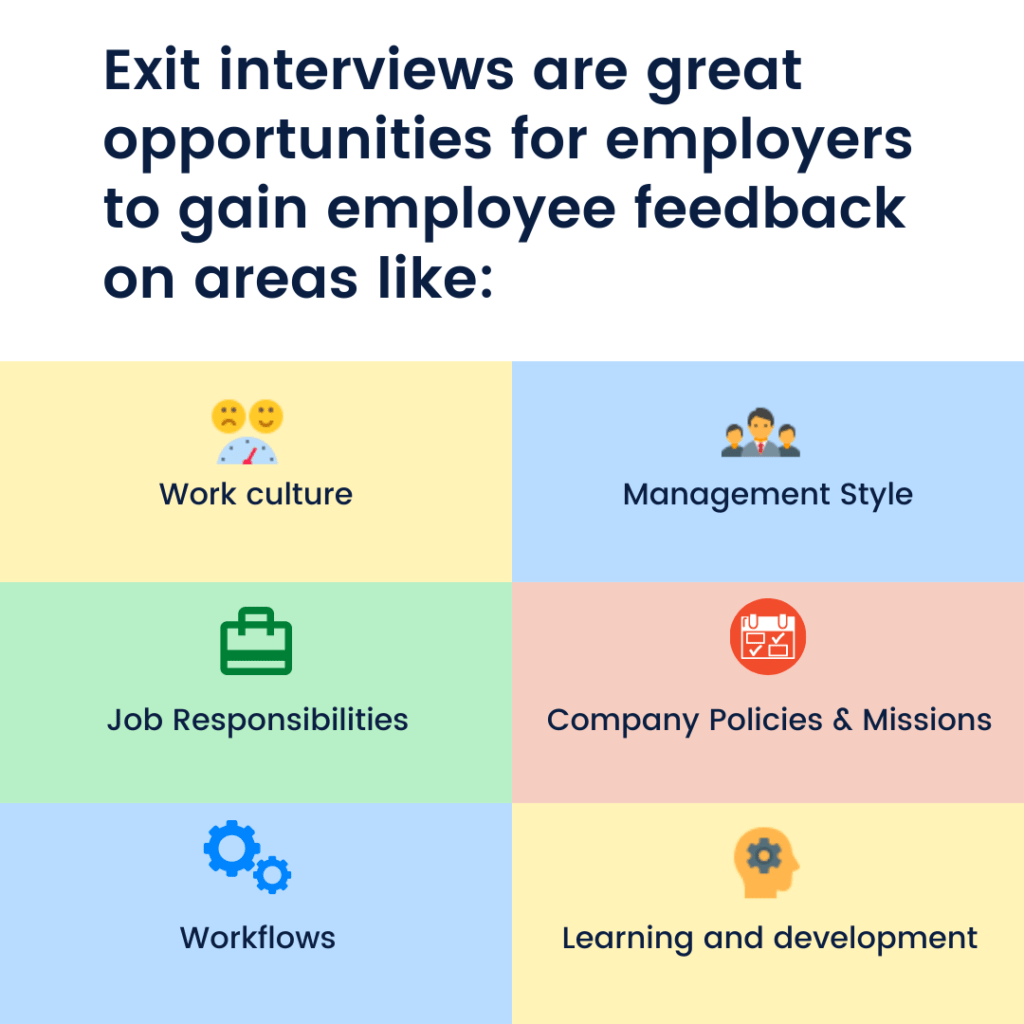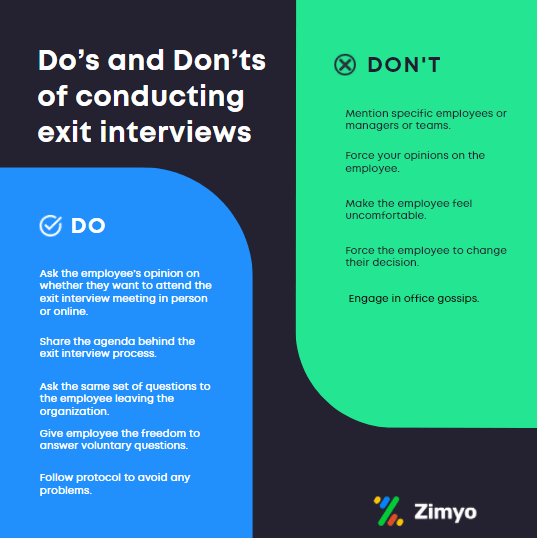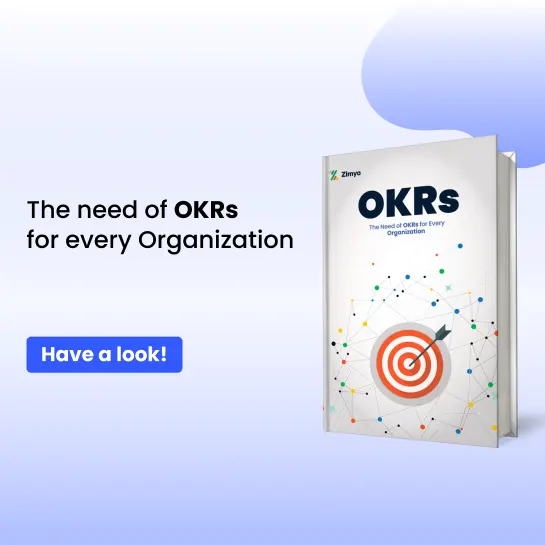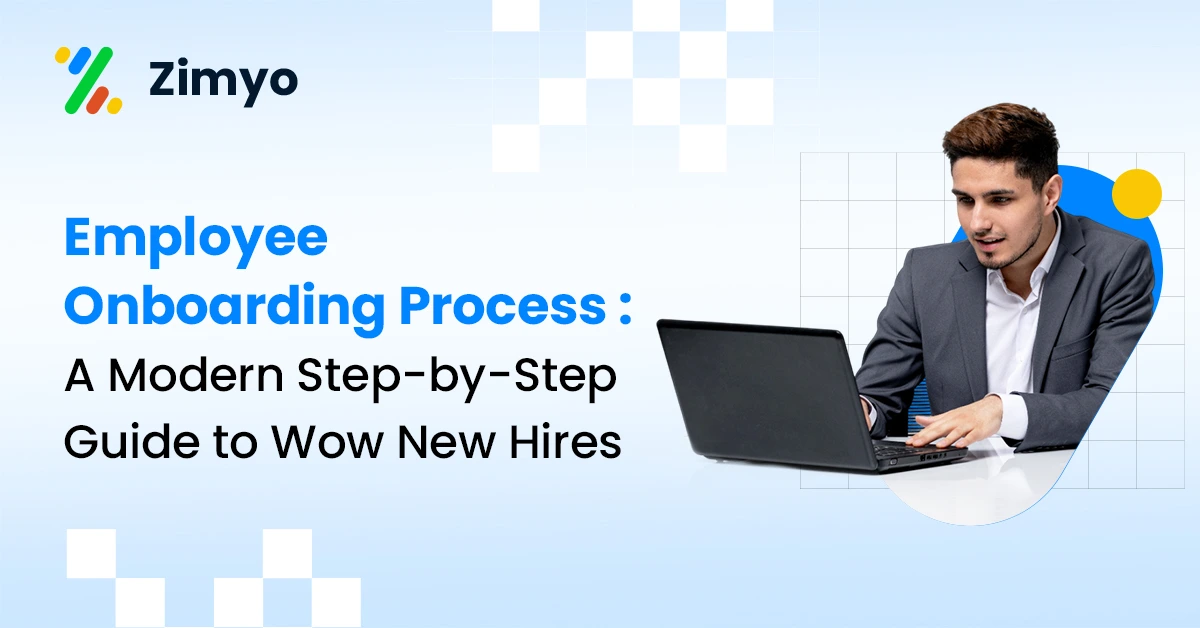Generally, the last day of an employee in an organization is all about saying goodbye to peers, handing over the company data or other assets back to the organization, and signing a few forms. However, what most organizations fail to do on the last day of an employee is to conduct exit interviews. Yes, conducting exit interviews on the last day of employment is crucial in figuring out why the employee left or chose to work for another organization.
Apart from that, an exit interview can also help employees share their honest feedback about their experience in the organization. This way they can help you improve your work policies, environment, processes, or strategies so that no other employee leaves for the same reasons. In this comprehensive guide, we have described in detail all about the employee exit interviews and how you can conduct effective exit interviews. Keep scrolling!
What is an exit interview?
Similar to a hiring interview, an exit interview is a process of interviewing an employee in which the interviewer asks about “why the employee is leaving the organization”, instead of asking “why the employee wants to join the organization.” It is a meeting scheduled between an employee who is leaving the organization and a member of the human resources team or their manager.
Conducting an exit interview gives you insights into the factors that have influenced the employee’s reasons to leave the organization. You can use this data or information to improve things that are not serving the organization such as poor working conditions, toxic work culture, poor management, leadership, etc. When you act upon the feedback received during the exit interviews, you can make changes in the organization that make the workplace a better place for other employees and new hires.

Read more: The must-have HR policies for your organization
How to conduct an exit interview?
Conducting effective exit interviews is no rocket science, all you need to do is to follow the below-mentioned steps and you are all set with your exit interview forms or process:
1. Make exit interviews a part of your HR processes
The first step is to make exit interviews a part of your HR activities. Exit interviews should be a part of the employee offboarding process. You need to follow this process every time an employee departs from the organization. Introduce this newly implemented process to all your employees, new hires, and your HR managers.
2. Select the right member for taking the exit interviews
It is important to choose the right member for conducting the exit interviews. This is because it acts as a major factor in receiving honest and open feedback from the departing employees. Generally, an HR leader is responsible for taking the exit interviews but organizations can also consider external agencies or people to hold an exit interview meeting.
3. Make preparations beforehand
Preparing yourself for the interview, whether it’s a hiring interview or an exit interview is important to make sure you get the best out of the process. Therefore, be ready with the interview questions, schedule a meeting, share the calendar invite with the employee, and ensure the interview is held in private without any interruptions.
4. Choose a time that is convenient
Informing the employee about the exit interview process right before their last day at work is neither convenient nor right. Therefore, you need to schedule the exit interview two weeks before the employee’s departure from the organization. This will give both the interviewer and the employees enough time to make preparations. You can also consider holding the exit interview meeting after the employee leaves the organization to get honest feedback.
5. Don’t ignore the written employee surveys
Before you hold a meeting with the employee, it is important to hand over a written employee survey to get feedback from them. This will give them an idea of how to respond to questions in the exit interview meeting. Thus, helping them feel comfortable during the interview. It also helps HR leaders frame questions based on the responses received from the employees in the written questionnaire.
6. Listen carefully to the employee
Don’t conduct exit interviews if you think of it as a formality. There’s no point in wasting time if you are not willing to listen and act upon your employees’ concerns or feedback. One must actively listen to the employees so that they can get an understanding of what they are trying to convey. Active listening also allows the employees to offer honest feedback as they know things will change for the better, if not for them then for somebody else.
7. Take employees’ approval to share the exit interview data
No employee would like to have bitter relationships with their ex-colleagues or employers. Therefore, exit interviews are often confidential. However, if you wish to share the information or feedback received to other members of the organization then it is advisable to seek the employees’ permission for the same.
Questions to ask during exit interviews
Many times employers don’t know what to ask or not to the employee while conducting exit interviews. However, from now on you won’t have to struggle with finding the right questions to ask during exit interviews. We have compiled a list of the most common questions you can ask your employees who are leaving the organization. Have a look at them:
1. General Questions:
- How are you doing?
- Is everything all right with your family?
- Are you facing any problems- personal or professional?
2. Questions to speculate about employees’ separation:
- Why did you make the decision to leave?
- When did you decide to leave the company?
- What factors influenced your decision?
- Is there anything specific you would like to mention that made you leave the company?
3. Questions about employees’ new organization:
- What made you choose the other organization over our company?
- Can you mention your roles and responsibilities in your new organization?
4. Questions related to employee retention:
- Did we make enough efforts to keep you in the organization?
- What could have been done differently to change your decision to leave?
- Did you have any specific problems and had you mentioned those problems to any other people in the organization?
- Do other employees share the same feelings or thoughts about working here?
5. Questions regarding the employees’ performance:
- Were you clear on your goals and objectives?
- Do you agree you had all the resources needed to perform your job well?
- Was frequent and constructive feedback provided to you during your tenure in the organization?
- Do you feel your manager was biased during the performance evaluation?
- Did you work on the right tasks and projects?
6. Questions related to the work culture:
- What are your thoughts on working here?
- Do you think enough learning and development opportunities are provided to the employees here?
- What is the company doing right and where it is going wrong?
- Were you given enough opportunities to express your thoughts and opinions in the organization?
- You can use this exit interview process to tell us if there’s anything that made you feel that the work culture here is toxic?
- Were you given enough opportunities to express your thoughts and opinions in the organization?
- Have you ever felt overworked or overburdened?
- Were you able to maintain a work-life balance while working here?
- Did you face any communication issues during your tenure in the organization?
7. Questions regarding the team:
- Do you have any specific thoughts about your manager or the department you work in?
- Were your manager and team members supportive and collaborative?
- Do you think your manager has all the qualities of a good manager?
- Who are some employees or managers who have made a positive impact on your time here, and why?
- What do you like most about your manager or supervisor?
8. Questions around rewards and recognition:
- Do you feel your efforts were appreciated by the organization?
- Have you ever sensed any kind of favoritism in the workplace?
- Were enough career development opportunities provided to you?
- Do you think you were given fair compensation?
- Is there anything we can add to our employee benefits programs?
9. Questions to take employees’ suggestions:
- Do you have any suggestions on how we can improve as a company?
- Would you recommend the company to your family and friends?
- Do you have any references for your replacement?
- Is there anything we should do differently during the onboarding process?
- Do you have any advice for the company’s CEO?
- If given the opportunity, would you consider coming back to work here in the future? What change would you need for the same?

How to use the employee exit interview data?
An exit interview will give you valuable information that might help you improve the employee experience in your company. Wondering how you can process the employee feedback? Follow these tips:
1. Make a report of the data
You need to store the information received during the exit interviews in a secured place. Note down all the important pointers and prepare a document to glean the necessary information from it. You can also use automated software to conduct exit interviews to keep the data stored in a safe and secure place. The use of software allows you to schedule the meeting, share the calendar invite to both the interviewer and the employee, create and share employee surveys, and make a repository of the feedback received.
2. Analyze the data
You can analyze the trends in employee feedback, once you are done with the process. Doing so will help you in fixing things before they become a recurring problem. For example, if you have noticed that most employees have given negative feedback about the work culture, then you must delve deeper into the problem and think of ways to improve the work culture. Similarly, if employees feel they are not evaluated fairly for their performance, then you can look into the problem and come up with a solution that ensures fair and accurate performance reviews. You can use performance management software to eliminate favoritism or bias from the organization.
3. Share the feedback with others
Keeping the data to yourself isn’t gonna help. You need to share the relevant information with the concerned people in the organization so that necessary changes can be implemented to improve the employee retention rate in the organization. However, one must seek the employees’ approval before sharing the exit interview feedback with others. By sharing the information you can help both the organization and managers to improve and work on the things that are important.
Objectives of exit interview
Conducting exit interviews is a practice not every company follows, but it is an important one.
Conduction of exit interviews holds specific objectives, some of them being:
1. Thoughts of the employee leaving
An organization must know its weaknesses and understand why the employee resigned or chose another company over you. This not only helps in analyzing the weak points but helps the company gain an upper edge in the market by rendering those weak points and eliminating them to never repeat those same mistakes.
2. Not letting the hard feelings grow.
In case of any dispute or misunderstanding among the faculty that urged an employee to resign, it’s vital to put all the hard feelings to bed and not let them hover over forever.
Exit interviews provide an opportunity to resolve the whole dispute once and for all.
3. Identify the pattern
By analyzing and keeping track of why the employees are leaving the firm, you might notice a pattern or trend that would lead you to identify the problem from its roots and terminate it.
4. Perception about the management
The individual is asked about his perception of management and how they liked working with them.
This provides a brief idea about the management and its flaws, offering them the opportunity to overcome these imperfections.
5. The interviewer matters
It must be ensured that the person conducting the exit interview of an individual never worked directly with him for honest and transparent answers.
6. Let the management know about their job roles.
What an employee expected and got in return might be two completely different scenarios.
The interview helps the management get an overview of a candidate’s expectations and job role and take the necessary measures to avoid this situation.
Dos and don'ts of exit interviews
Certain measures must be followed to conduct an effective exit interview and gain the most out of it.
Do's:
1. Develop a formal policy
For your departing employees to be aware of exit interviews, it’s better to have a formal policy enrolled for the same. This will give your employee more time to be prepared and won’t come as a surprise to them, entailing them to provide well thought and detailed perceptions.
2. Ask clear and straight questions.
Asking complex questions might not let the individual come out fully and convey their thoughts in a detailed manner. To get the most out of it, ask engaging and precise questions.
3. Provide them with a promised confidentiality.
Even though you cannot force an employee to be a part of exit interviews if they do not want to, promising confidentiality to them regarding their opinions and answers might convince them and also get the employees to be more transparent and engaging during the interview, sharing their honest insight.
4. Follow up
The most crucial part of an exit interview is analyzing and creating a report regarding the information collected from the departing employee to identify your company’s shortcomings to overcome them.
Every aspect of the interview should be considered, and activities to solve the problems must be implemented to avoid losing any other employee for the same reasons.
Don't's
1. Force any employee to participate in exit interviews
Everyone has their own choices, and forcing them to go against them is entirely unethical and unacceptable. If an employee is unwilling to participate in an exit interview, the company is expected to respect their decision instead of putting pressure on them to engage in the activity.
2. Include unnecessary people
Participation of unnecessary third parties in the interview process might give an idea to the employee that the information they provide won’t be kept confidential and limit them in conveying their honest thoughts and opinions. To provide them with a comfortable and secure environment, ensure not to engage many people in the interview
3. Not prepared
If you are not prepared for the interview in advance and have not listed down the questions you want to ask your employee, you are most likely to miss out on some of the critical questions or create a confusing environment in the room for yourself as well as the employee. In order to have a statistics, ethical and sophisticated interview, be sure to have a report of the important points you want to ask the employee about.
4. Rely on online surveys.
Online exit surveys might be beneficial but can not beat the role and significance of a face-to-face interview. Face-to-face interviews creates an impact and helps get more truthful information from your employee, an effect that online surveys lack.
5. Treat all job roles equally.
Asking the same questions and putting the same amount of effort and significance into conducting exit interviews for different jobs is not the right way.
If an employee on an upper post, hard to replace, is the one leaving the company, the questions asked to get out the relevant information has to be different from the ones asked of an employee on a post that is easily replaceable and does not hold much value in the organization.
6. Ignore the future influence of the interview.
Even though the individual’s journey is ending, it does not mean the image they hold about the organization does not matter.
It’s crucial to ensure that the departing employee leaves with a positive impact on the company that is good for its future and goodwill out in the market.
How to make an exit interview most successful and valuable?
For the company to have a successful and helpful exit interview, the first thing to remember is to choose an interviewer that is considered reliable and trustworthy among the employees and shares good relations with the people. This will create a sense of security, vulnerability, and friendliness in the individual, making him/her more comfortable sharing their honest reviews and thoughts with the interviewer instead of holding back the criticism they might hold. An honest answer would also hold some constructive criticism regarding the organization that needs to be changed for a better future.
Methods of conducting exit interviews
Even though nothing can compare to face-to-face interviews and the power it holds, it’s not feasible and possible for every company or every scenario. Instead of completely eliminating the idea of exit interviews, following your suitability, there are various other methods of conducting an exit interview:
1. In-person:
As discussed above, one of the best and most reliable forms of conducting exit interviews. The interviewer and interviewee sit across a room and exchange the required questions and answers.
2. Online
This form of the interview takes place on the company’s website. The employee is asked to visit the website and fill out the form associated with the exit interview. This process does not require the physical presence of anyone and is entirely web-based.
3. Telephone
The interviewer schedules a call on google meet or zoom with the interviewee to undergo the exit interview process.
Conclusion
If an employee decides to move on in their career and look for another opportunity, you should support their decision and offer them a smooth transition. Just like onboarding, your exit process should be smooth and hassle-free. Apart from holding exit interviews, you should also ensure that the departing employee is provided with all the necessary documents such as an experience letter, appreciation letter, letter of recommendation, etc. Also, you must inform other employees about their departure and ensure that the employee has been paid all the previous dues.







